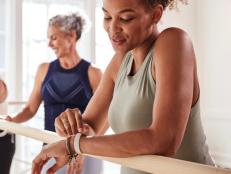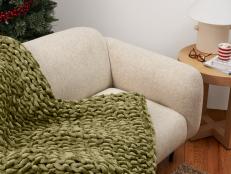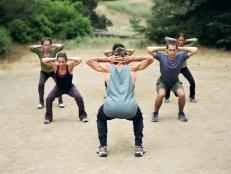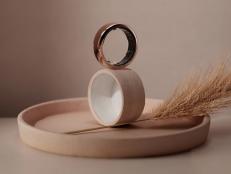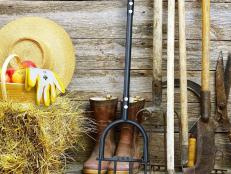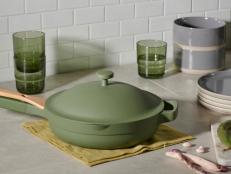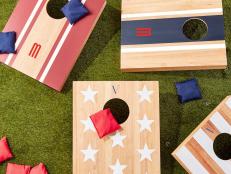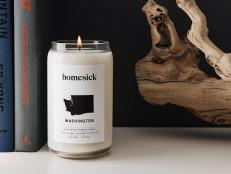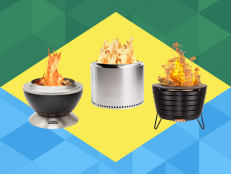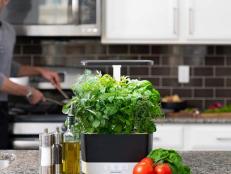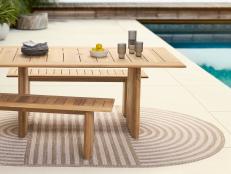What Is Reiki and How Can It Improve Your Health?
If you want to experience Reiki, it helps to hear from experts about the history and meaning of this practice.
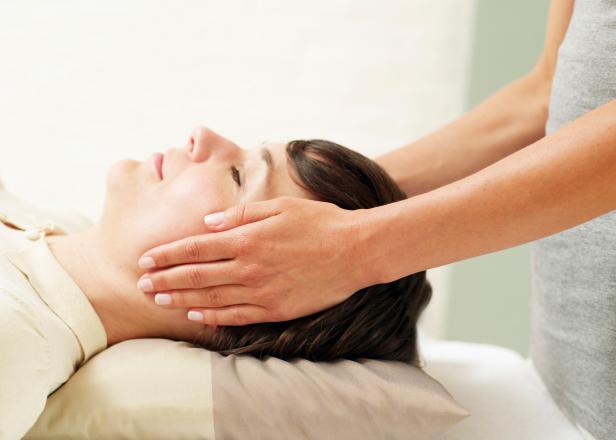
Getty Images; Westend61
Some refer to Reiki as energy medicine while others are cautious in claiming Reiki is an energy technique. The idea of Reiki is to optimize the body’s natural healing processes to promote overall balance in the body’s systems. Traditionally, Reiki is offered through light, non-invasive touch, in which the practitioner places their hands on specific locations on the body. Some people also float their hands above the body. Be aware that the touch in Reiki should not be inappropriate and there should not be any pressure.
What is Reiki?
Pamela Miles, author of Reiki: A Comprehensive Guide, says that Reiki practice is an invitation to wellness and a reminder of our body’s capacity to self-heal. “The response is somehow encouraged from the outside through the Reiki touch,” Miles, who started practicing Reiki in 1986, says. “But the reorganization happens from within.”
Trained by Hawayo Takata, who brought Reiki from Japan to the West, Susan Mitchell has been practicing Reiki since 1978. “I would describe Reiki as a spiritual practice and a folk art,” she says. “What that means to me is that Reiki is intended for everybody – young, old, in the middle – it doesn’t matter. All that matters is that you have two hands and a desire to help other people.”
Like many Reiki practitioners, Kelsey Patel, author of Burning Bright, says that she was a skeptic at first. But, once she started practicing Reiki and noticed that her back pain and anxiety were decreasing, she knew she had to share it with others. “I truly believe every single person can do Reiki,” she says. “Especially on themselves.”
Mitchell says that in the process of placing your hands, the body relaxes and is in a state where its systems can function more optimally and healing can happen. “It has therapeutic effects, but it’s not like energy medicine or massage where you manipulate the body in a certain way to enable a particular outcome,” she adds. “This is much simpler. We’re not really targeting symptoms, we’re enabling the body to move to its own healing process.”
How does Reiki work?
According to Miles, although medical intervention comes from the outside, healing comes from within us – and Reiki practice can help. “When the body is chronically stressed, our nervous system gets stuck in the sympathetic – or fight or flight – response, and it forgets how to down-regulate,” Miles says. “For unknown reasons, the response to Reiki touch is that the body remembers to down-regulate, and it shifts from the sympathetic state to the parasympathetic state.” When the body is in the parasympathetic state – and we get good sleep and digestion improves – our self-healing is optimized, she adds.
Miles says that adding Reiki practice to one’s medical care can also tip the scales in the patient’s favor by enabling the body’s self-healing mechanisms to get back on line. “When people have needed medical care, whether they’re getting cancer treatment or life-saving surgery, there is trauma to the body – and that’s the piece that conventional medicine can’t really address,” Miles says. “You’re told to rest, but who can rest when you’re traumatized and anxious? Reiki can help the system move out of that trauma response, where the body can’t self-heal, into a state in which it’s able to self-heal.”
It is important to note that it is not known what elicits the self-healing response when Reiki hands are placed on ourselves or on someone else, Miles adds. That’s part of the mystery that comes with Reiki being a spiritual practice. Rather than trying to understand how it works, Miles says it’s important to look at the way the body responds physiologically.
The change that is the easiest, and quickest, to observe is how people’s breathing improves when receiving Reiki treatment, she adds. “You start seeing an adult’s belly moving with the breath the same way when you look at a baby breathing – it stops catching and it gets deeper.” Additionally, in a study conducted by Yale-New Haven Hospital, patients who received a 20-minute Reiki treatment after having suffered a heart attack within the past 72 hours displayed improved heart rate variability (which is a measurement of the interval between heartbeats). “This is very important because an improved heart rate variability shows that the system is more resilient and that it is able to self-heal,” Miles says.
Where does Reiki come from?
It's important to recognize the origins of Reiki in Japanese culture and to understand its depth as a spiritual practice. It's not simply a wellness fix.
Although many know Reiki as a practice you do to others, not many recognize it as a form of self-care, Miles says. “As Hawayo Takata would say, 'First yourself.'” Takata brought the practice to Hawaii in the 1930s with the help of her Reiki master Chujiro Hayashi, who had learned from Reiki lineage founder Mikao Usui.
According to Miles, the subtleties of the term Reiki – which is not a word but rather a pictogram in Japanese – got lost in translation. “The difference between Japanese language and Romance languages is like the difference between reading a book and watching a movie,” she says. “The movie spells it all out for you – you don’t have to engage with it in the same way that you do when reading a book.”
In that sense, the complete meaning of Reiki can’t be directly translated, as Japanese language contains symbolism and nuance that the English language does not. “Mikao Usui viewed Reiki as a spiritual practice – the idea of Reiki as merely an energy technique came with the Americanization of the practice, which is understandable,” Miles says.

Getty Images; Westend61
How can I start practicing Reiki?
Traditionally, there are three levels of Reiki when becoming a practitioner: first degree, second degree and Reiki master teacher. Level one usually consists of learning how to self-practice and practice informally on family, friends and even pets. Level two enables you to do distant treatment, and a Reiki master is a teacher.
It’s important to understand that every practitioner works differently – and that’s part of the beauty of Reiki. In the case of Reiki master Frances Naude, most of her Reiki sessions are remote. “The way that I describe it to people is like the idea of love – you don’t have to be hugging someone to love them,” she says.
“There is traditional Usui Reiki and non-traditional Usui Reiki,” says Naude, who describes herself as part of the non-traditional path. “I think that the world really needs Reiki right now, which is why it’s evolving the way that it is,” Naude says. “I believe in always upholding the roots and sacred nature of the work, but evolution is also important because we need things to change to fit what the world has become.”
To Miles, it is important that Reiki isn't regulated, as it is a spiritual practice. “But, at the same time, we want to educate the public about the diversity in the field, because not everyone practicing Reiki is doing the same thing – and the public doesn’t know that,” she says.
Mitchell says that there is a strong movement across the country to regulate Reiki practice through licensing. And so, she started an organization, along with some friends, called Reiki Unified, to raise awareness. “Reiki is a folk art and a spiritual practice, so it doesn’t lend itself to be structured,” she says. “There are so many ways people practice Reiki, and people who have been trained differently shouldn’t be sacrificed for one standard – especially in an era where we’re really becoming sensitive about the value of diversity.”
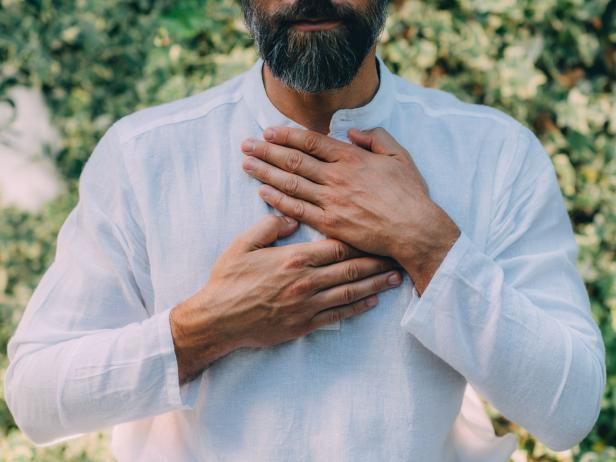
Shutterstock/Microgen
How can I choose a teacher?
Miles says that if you haven’t been trained, you’re not actually practicing Reiki – what you’re practicing is a light-touch self-care. “That is already valuable – but you can’t learn how to practice Reiki from any book, you must learn Reiki through a teacher,” she says. Mitchell agrees. “It’s not book learning, it’s not intellectual,” she says. “It’s done through connection with a teacher. And these are very old ways of learning.”
When it comes to choosing a teacher, Mitchell says that her primary requirement is that they practice self-Reiki every day. “There have been many changes to Reiki, and I can't evaluate those – Reiki is a very subjective experience,” she says. “But, I believe that no matter how you’ve been trained, the most important thing is whether you practice on yourself every day.”
Patel agrees. Once Reiki masters start practicing, they sometimes stop receiving, she says. “I think that to be a good practitioner, it’s a beautiful thing to continue to be in a receptive stage of receiving Reiki, both self-Reiki and from someone else too.”
If you’re interested in Reiki, inquiry is essential. Whether that means asking friends, getting recommendations from your family, or joining a community Reiki circle you’re curious about, it is essential that you do some research, Patel says.
“Make sure you actually feel connected to the practitioner and don’t be afraid to ask questions,” Naude says.
Why Reiki?
People today are struggling – not that people haven’t always struggled – but the times we live in are challenging, Mitchell says. “When we see people around us having a hard time, we naturally want to offer something. Time and again in my life that is something I have so valued, that I’ve felt I always have something to offer – if that other person wanted it. And that is Reiki.”
Regardless of the teacher or practice, Mitchell says that the one thing we could all benefit from is some kind of spiritual practice. “So much of our trouble comes from not having a relationship with ourselves that’s deep and meaningful,” she says. “And if we have that, it will change the way we understand others, making a difference in how we all manage together on this little planet.”







